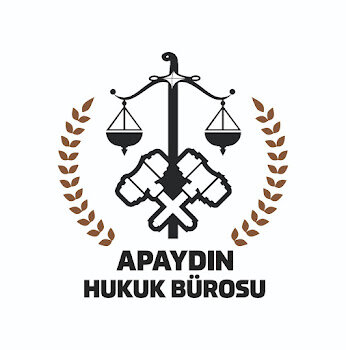Best Civil Rights Lawyers in Turkey
Share your needs with us, get contacted by law firms.
Free. Takes 2 min.
Or refine your search by selecting a city:
List of the best lawyers in Turkey
About Civil Rights Law in Turkey
Civil Rights in Turkey encompass a range of issues aimed at ensuring the fair and equal treatment of all individuals within the country. This includes rights related to freedom of speech, freedom of assembly, protection against discrimination, and the right to due process. The legal framework for Civil Rights in Turkey is strongly influenced by both national constitution and international human rights agreements to which Turkey is a signatory, such as the European Convention on Human Rights. However, the enforcement and protection of these rights can vary due to political, social, and economic factors.
Why You May Need a Lawyer
Individuals may seek legal assistance in the field of Civil Rights for various reasons. Common situations include experiencing discrimination based on gender, ethnicity, religion or disability; facing unlawful detention or mistreatment by authorities; and issues pertaining to freedom of speech and expression, such as wrongful censorship or defamation. Additionally, those involved in civil protests may require legal support to address any repercussions, or need assistance in navigating the legal channels to protect their rights.
Local Laws Overview
The Constitution of the Republic of Turkey serves as the cornerstone of civil rights protections, outlining fundamental freedoms such as equality before the law, personal liberty, and security. Key legislation relevant to Civil Rights includes the Turkish Penal Code, the Law on the Protection of Personal Data, and Anti-Discrimination laws. Furthermore, Turkey participates in international agreements that influence its domestic civil rights framework. However, challenges in interpretation and enforcement can arise, making expert legal guidance essential to navigate these complexities.
Frequently Asked Questions
What are my basic Civil Rights in Turkey?
Basic Civil Rights in Turkey include the right to equality, freedom of speech, freedom of assembly, and protection from discrimination. The Turkish Constitution and various national laws outline these rights.
Can I be legally protected if I experience discrimination?
Yes, there are laws in Turkey that protect against discrimination based on race, gender, disability, and other factors. Legal recourse is available if someone experiences such discrimination.
What should I do if I am arrested during a protest?
If detained, it's important to remain calm and request legal representation. Turkish law provides for the right to a lawyer, and being informed of your rights is critical in such situations.
How does Turkish law protect freedom of expression?
The Turkish Constitution guarantees freedom of expression, but there are significant restrictions when it comes to national security, public order, and morality. Legal guidance can help navigate these constraints.
Is my privacy protected under Turkish law?
Yes, the Law on the Protection of Personal Data outlines privacy protections, and there are legal measures available if these rights are violated.
What are my rights if I face police misconduct?
Victims of police misconduct can file complaints with relevant authorities and seek legal action under civil rights laws against unlawful treatment.
Can I file a complaint if my civil rights are violated?
Yes, complaints regarding civil rights violations can be filed with judicial authorities or relevant human rights institutions.
What role do international human rights agreements play in Turkey?
International agreements like the European Convention on Human Rights influence Turkish civil rights laws and can be used in legal arguments and cases.
How does the legal process for civil rights cases work?
Civil rights cases typically involve filing a legal complaint, engaging in a court process, and potentially appealing decisions. A lawyer can guide you through each step.
What is the role of the judiciary in protecting civil rights?
The judiciary plays a key role in interpreting laws and ensuring the enforcement of civil rights. However, the effectiveness can vary due to political and societal contexts.
Additional Resources
For those seeking additional information or assistance with civil rights in Turkey, resources such as the Human Rights Association (İHD), the Turkish Human Rights and Equality Institution, and various law firms specializing in human rights are available. Governmental bodies like the Ombudsman Institution can also provide guidance and support.
Next Steps
If you need legal assistance with a civil rights issue in Turkey, consider consulting a lawyer who specializes in this field to better understand your rights and options. Begin by documenting all relevant details of your situation, and research potential legal representatives or human rights organizations that can provide support or representation. Additionally, contact legal aid services if financial constraints are a concern.
Lawzana helps you find the best lawyers and law firms in Turkey through a curated and pre-screened list of qualified legal professionals. Our platform offers rankings and detailed profiles of attorneys and law firms, allowing you to compare based on practice areas, including Civil Rights, experience, and client feedback.
Each profile includes a description of the firm's areas of practice, client reviews, team members and partners, year of establishment, spoken languages, office locations, contact information, social media presence, and any published articles or resources. Most firms on our platform speak English and are experienced in both local and international legal matters.
Get a quote from top-rated law firms in Turkey — quickly, securely, and without unnecessary hassle.
Disclaimer:
The information provided on this page is for general informational purposes only and does not constitute legal advice. While we strive to ensure the accuracy and relevance of the content, legal information may change over time, and interpretations of the law can vary. You should always consult with a qualified legal professional for advice specific to your situation.
We disclaim all liability for actions taken or not taken based on the content of this page. If you believe any information is incorrect or outdated, please contact us, and we will review and update it where appropriate.
Browse civil rights law firms by city in Turkey
Refine your search by selecting a city.

















